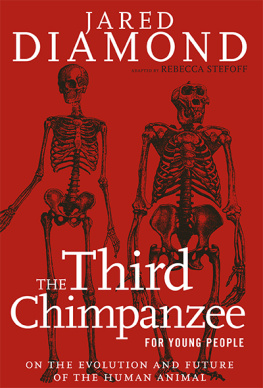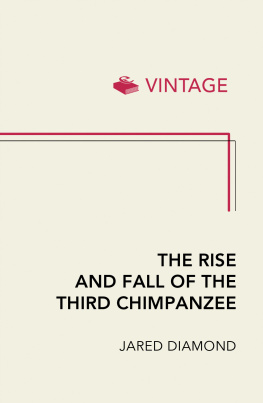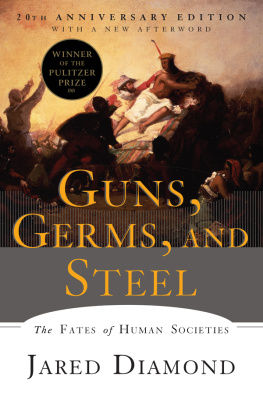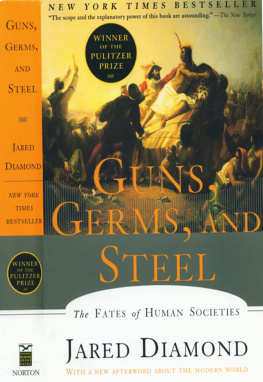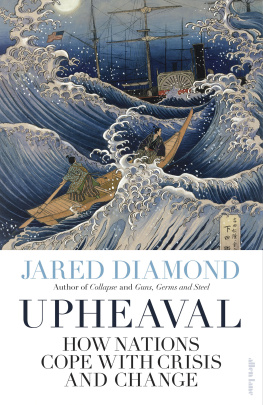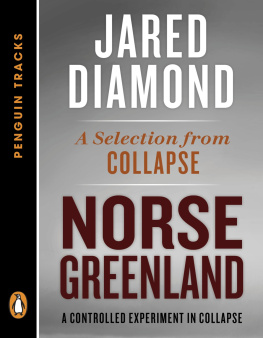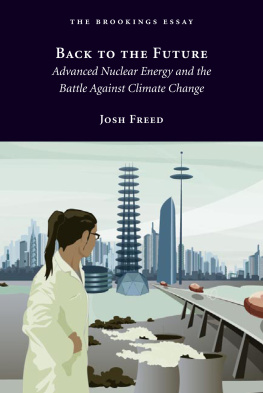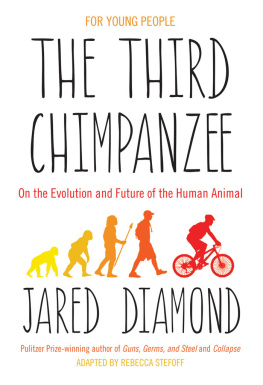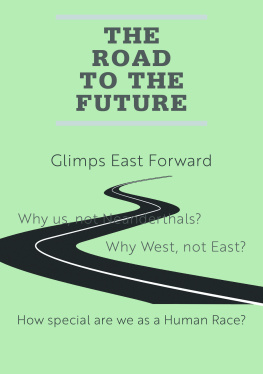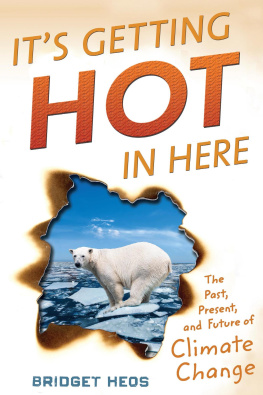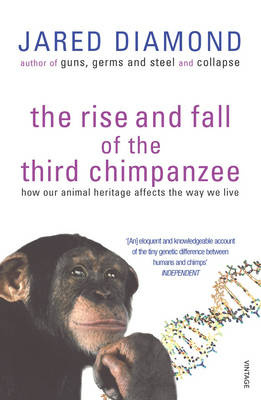
About the Authors
JARED DIAMOND is professor of geography at the University of California, Lost Angeles. He has published over 200 articles in Discover, Natural History, Nature, and Geo magazines. His is the author of several books including Guns, Germs, and Steel, which was awarded the Pulitzer Prize and has sold over 1.5 million copies, the international bestseller Collapse, and the recently published The World Until Yesterday: What Can We Learn from Traditional Societies?
REBECCA STEFOFF is the author of a biography of the Shawnee chieftan Tecumseh and a tenvolume series of historical atlases, among many other books for children and young adults. She has adapted Howard Zinns celebrated A Young Peoples History of the United States and Ronald Takakis A Different Mirror for Young People. She lives in Portland, Oregon.
AFTERWORD
NOTHING LEARNED, EVERYTHING FORGOTTEN?
THE THEMES OF THIS BOOK COME TOGETHER IN our rise over the past three million years and also in the way we now stand on the verge of reversing all our progress.
The first signs that our ancestors were unusual among animals were the crude stone tools that appeared in Africa 2.5 million years ago. Although tools were becoming a regular, important part of our livelihood, they did not trigger a big jump in our development as a species.
For another 1.5 million years we remained in Africa. Around a million years ago we spread to the warm areas of Europe and Asia. This made us the most widespread of the three chimpanzee speciesbut still much less widespread than lions. By 100,000 years ago, at least, Neanderthal humans were using fire, but in other ways we were still just another big mammal. We had not developed a trace of art, architecture, or high technology. No one knows whether we had developed language, drug addictions, or our mating habits and life cycle.
Clear evidence of a Great Leap Forward shows up suddenly in Europe about sixty thousand years ago, at the same time that anatomically modern humans, Homo sapiens, arrived from Africa. Art appeared, along with technology based on specialized tools for various uses. Human cultures began showing differences across time and place. Whatever caused this leap, it must have used only a tiny fraction of our genes. We still differ from chimps in just 1.6 percent of our genetic makeup, and most of that difference formed before our Great Leap in behavior. My best guess is that the Leap was triggered when we became capable of language.
These first modern humans bore noble traits, but they also bore two traits that lie at the root of our modern problems. One is our tendency to murder each other in large numbers. The other is our tendency to destroy our environment and our resource base. If the seeds of self-destruction have been closely linked to the rise of advanced civilizations in other solar systems as well, it is easy to understand why we have not been visited by any flying saucers.
At the end of the last Ice Age, ten thousand years ago, the rise of our civilization gained speed. We occupied the Americasat the same time that many large mammals disappeared from those continents. Soon agriculture began. A few thousand years later, the first written texts appeared. Our early writings record our progress and inventiveness, but they also show that addiction and genocide were already part of human life. Habitat destruction started to undermine many societies. The first human settlers in Polynesia and Madagascar caused mass exterminations of species. Histories written since that time have traced our rise and fall in detail.
Since the 1940s we have had the means to blow ourselves up overnight. Even if we dont blunder into that quick end, starvation, pollution, and destructive technology are increasing. Farmland, food stocks in the sea, and other natural resources are decreasing. So is the environments ability to absorb wastes. As more people with more power scramble for fewer resources, something has to give.
What is likely to happen?
There are many reasons to fear the worst. Even if all humans vanished tomorrow, our environment is so damaged that it would keep degrading for decades. Too many species to count already belong to the living dead individuals remain, but their numbers are too few to keep the population going.
Despite what we could have learned from our past self-destructive behavior, many people who should know better think there is no reason to limit our population numbers or to stop assaulting our environment. Some join that assault for profit or out of ignorance. Many more are desperate to survive, and dont have the luxury of thinking about the future. All these facts suggest that destruction is unstoppable and that we humans, too, are among the living dead, with a future as bleak as that of the other two chimpanzees.
This grim view is captured in a sentence written in 1912 by Arthur Wichmann, a Dutch explorer and professor. Seeing explorers in New Guinea make the same mistakes over and over again, leading to unnecessary suffering and death, Wichmann predicted that future explorers would continue to make the same mistakes. Nothing learned, he wrote, and everything forgotten!
But I believe our situation is not hopeless.We are the only ones creating our problems, so its completely within our power to solve them. We are the only animals that can learn from the experiences of other members of our species living in distant places or in the past. Among the hopeful signs are many realistic ways to avoid disaster, such as by limiting human population growth, preserving natural habitats, and adopting other environmental safeguards. Many governments are already doing some of these things.
Awareness of environmental problems is spreading. Many countries have lowered their rate of population growth. Genocide has not vanished, but the spread of communication technology may reduce our xenophobia, making it harder to see distant people as subhuman or different from us. I was seven years old when the A-bombs were dropped on Hiroshima and Nagasaki in 1945. I remember that for decades afterward, people felt that nuclear destruction could happen at any moment. But that risk now seems more remote than at any time since those bombs fell. These are reasons for hope.
We dont need new, still-to-be-invented technology to solve our problems. We just need more governments to do many more of the same things that some are already doing. And the average citizen is not powerless. In recent years, citizen groups have helped fight the extinction of many species. Commercial whaling and the hunting of big cats for fur coats are just two examples of harmful activities that have been greatly reduced because of changes in the publics attitudes.
I see us facing serious problems and an uncertain future, but I am cautiously hopeful. Even Wichmanns grim prediction turned out to be false. Explorers in New Guinea since his time have learned from the past and avoided the disasters of those who went before.
A better motto for our future may come from Otto von Bismarck, a German statesman who worked in European politics for decades. Even though he had seen many errors and much stupidity, Bismarck still believed it was possible to learn from history. He wrote about his life and dedicated the work to [my] children and grandchildren, towards an understanding of the past, and for guidance for the future.
This is the spirit in which I dedicate this book to my young sons and their generation. If we learn from the past that I have traced, our future may be brighter than that of the other two chimpanzees.
Next page
